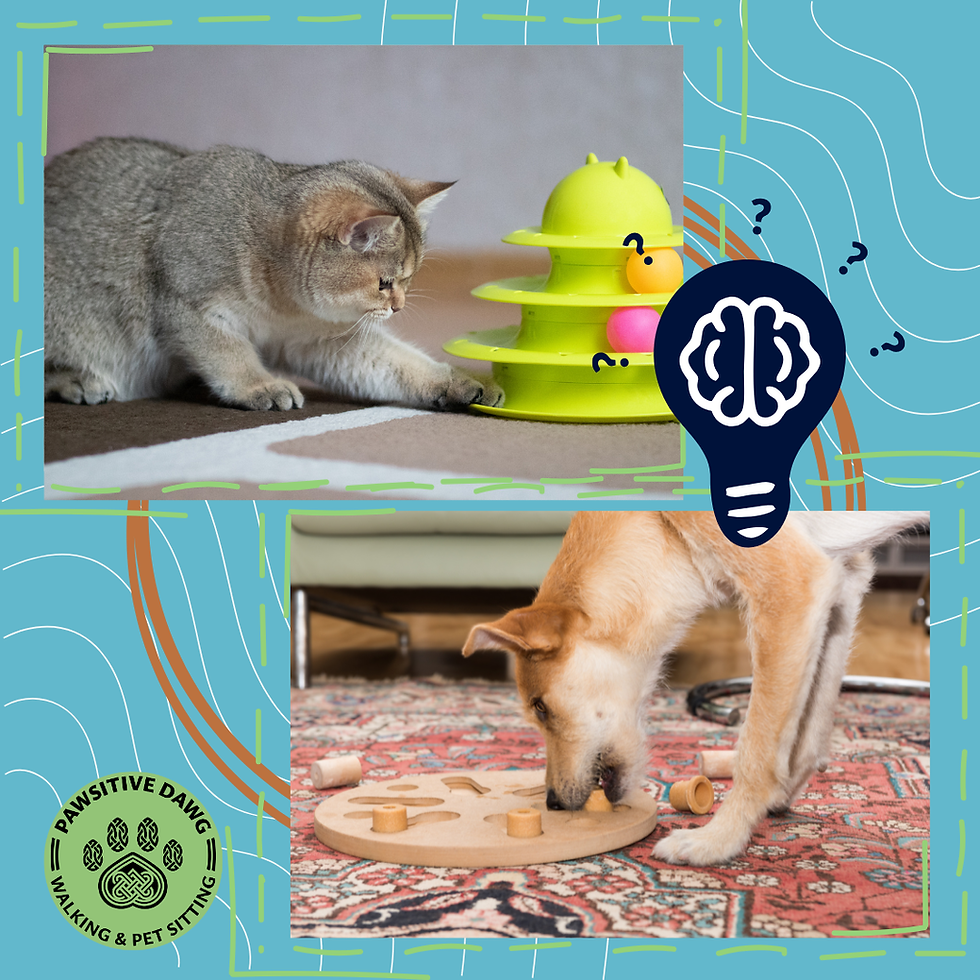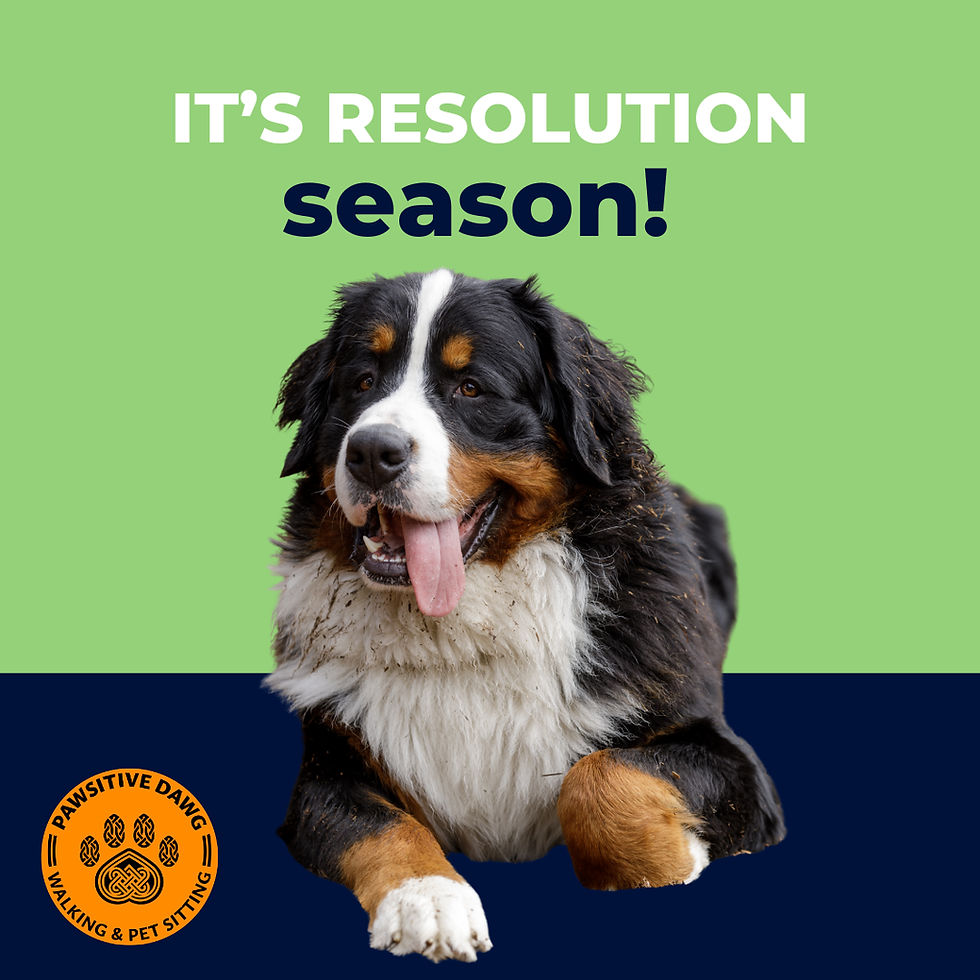Preventing Pet Poisoning: Awareness and Action for Pet Safety
- The Pawsitive Dawg Walking and Pet Sitting Team

- Mar 3, 2025
- 3 min read

March is Pet Poison Prevention Awareness Month, a crucial time to educate pet parents about potential hazards in their homes. Every year, thousands of pets suffer from accidental poisoning due to exposure to toxic substances. By understanding common household toxins, recognizing poisoning symptoms, and taking preventative measures, you can keep your furry companions safe and healthy.
Common Household Toxins
Pets are naturally curious, often exploring their environment with their noses and mouths. Unfortunately, this curiosity can put them at risk if dangerous substances are within reach. Some of the most common household toxins include:
Toxic Plants: Many popular houseplants can be harmful to pets if ingested. Lilies (extremely toxic to cats), aloe vera, sago palms, and pothos are just a few examples. Always research plants before bringing them into your home.
Human Foods: Some foods that are safe for humans can be dangerous to pets. Chocolate, grapes, raisins, onions, garlic, xylitol (a sugar substitute found in gum and some peanut butter), and alcohol can cause severe reactions, from gastrointestinal distress to organ failure.
Household Chemicals: Cleaning supplies, pesticides, antifreeze, and certain essential oils (such as tea tree, eucalyptus, and peppermint) can be toxic if ingested or even inhaled by pets.
Medications: Both over-the-counter and prescription medications can be harmful to pets. Ibuprofen, acetaminophen, antidepressants, and heart medications are particularly dangerous if accidentally ingested.
Symptoms of Poisoning and Emergency Steps
Recognizing the signs of poisoning can mean the difference between life and death for your pet. Symptoms may vary depending on the toxin but commonly include:
Vomiting or diarrhea
Drooling or foaming at the mouth
Lethargy or weakness
Seizures or tremors
Difficulty breathing
Loss of coordination
Excessive thirst or urination
If you suspect your pet has been poisoned, take immediate action:
Stay Calm: Panic can delay necessary actions.
Remove Access to the Toxin: If possible, remove your pet from the area and secure the toxic substance.
Check the Label: If the toxin is a household product, check the label for first aid instructions.
Call Your Veterinarian or a Poison Helpline: The ASPCA Animal Poison Control Center (888-426-4435) and the Pet Poison Helpline (855-764-7661) are available 24/7 for immediate guidance.
Do Not Induce Vomiting Unless Instructed: Some toxins can cause more harm if vomited.
Bring a Sample: If possible, take a sample of the toxic substance or its packaging with you to the vet for reference.
Pet-Proofing Your Home
Preventing pet poisoning starts with creating a safe environment. Here are some essential pet-proofing tips:
Secure Medications and Cleaning Supplies: Store all medications, chemicals, and personal care items in cabinets that pets cannot access.
Keep Food Out of Reach: Be mindful of leaving food unattended, and store pantry items in sealed containers.
Choose Pet-Safe Plants: Research plants before adding them to your home or garden.
Use Pet-Friendly Cleaning Products: Look for pet-safe alternatives or keep pets out of the area while using strong chemicals.
Monitor Outdoor Hazards: Be cautious of pesticides, fertilizers, and antifreeze spills in driveways or garages.
Educate Family Members: Ensure everyone in the household knows what is and isn’t safe for pets.
Awareness is the key to prevention when it comes to pet poisoning. By identifying household toxins, recognizing symptoms of poisoning, and taking proactive safety measures, pet parents can greatly reduce the risk of accidental poisoning. This Pet Poison Prevention Awareness Month, take the time to inspect your home and make necessary adjustments to create a safe and pet-friendly environment. Your furry companions depend on you to keep them out of harm’s way!








Comments